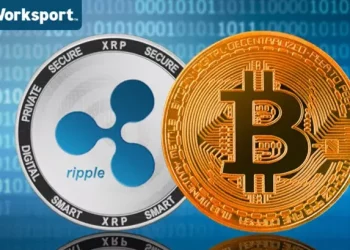The Ethereum ecosystem is set to undergo a significant upgrade with the introduction of EIP 7742 as part of the upcoming Pectra Upgrade. This decision was made during the 144th All Core Developers Consensus Call (ACDC), as noted by Christine Kim, Vice President and researcher at Galaxy. This move underscores Ethereum developers’ commitment to enhancing the network’s functionality and scalability.
What is EIP 7742?
EIP 7742 aims to establish a dynamic mechanism for the Consensus Layer (CL) to set the blob gas target and maximum limits. This adjustment is essential for efficiently managing gas limits on the Ethereum mainnet, a critical factor for the network’s overall performance and user experience.
Key Features of the Pectra Upgrade
Dynamic Blob Gas Management: EIP 7742 will enable more flexible gas management, which is vital for optimizing transaction processing and reducing congestion on the network.
Increased Blob Count: There is a strong possibility that the Pectra Upgrade will include an increase in blob counts, further enhancing the network’s capacity to handle transactions.
EIP 3074 – Social Recovery: Another significant aspect of the Pectra Upgrade is EIP 3074, which introduces a “social recovery” feature. This innovation addresses a longstanding issue for Ethereum users: the loss of private keys. With this feature, users can delegate asset ownership to an “invoker” contract, allowing it to perform future transactions on their behalf. This not only mitigates the risk of lost keys but also streamlines user interactions with the Ethereum network.
Addressing Delegation Risks
The Pectra Upgrade is crucial for tackling delegation risks that users have faced historically. By implementing formally verified and fully audited invoker contracts, the upgrade aims to connect users with reliable options to enhance security and user trust. This focus on security will be instrumental in ensuring the safe management of assets within the Ethereum ecosystem.
Additional Enhancements
The upgrade also promises to allow users to conduct transactions without needing Ethereum in their wallets for gas fees. The invoker contract can cover these fees upfront, making the process more user-friendly and accessible. Moreover, the implementation of EIP-3074 enables users to complete multiple actions within a single transaction, increasing efficiency.
Recent Updates and Future Plans
In preparation for the Pectra Upgrade, several enhancements have been rolled out across Ethereum clients. For instance, Go Ethereum (Geth) released version 1.14.18 to address bugs and improve network performance. Similarly, Nimbus introduced version 24.7.0 in late July.
Ethereum co-founder Vitalik Buterin is also focused on scalability improvements, revisiting the topic of The Merge and proposing enhancements to the Proof-of-Stake (PoS) system. His suggestions include exploring “economic finality” and democratizing the staking process, which could have significant implications for Ethereum’s future growth.
Conclusion
The addition of EIP 7742 to the Pectra Upgrade is a pivotal moment for Ethereum, signaling a strong commitment to enhancing the network’s capabilities and user experience. As developers continue to implement innovative solutions like social recovery and dynamic gas management, the Ethereum ecosystem is poised for greater scalability and security. With the anticipated launch of Pectra by the end of this year or early 2025, the Ethereum community eagerly awaits these transformative changes.
Related topics:
Meme Coin Surges Over 30% Following 3AC Co-Founder’s Long Position
RBI Governor Shaktikanta Das Advocates for India’s CBDC to Mitigate Crypto Risks
How Will Crypto Market React To Stock Market Hitting New ATH?

















